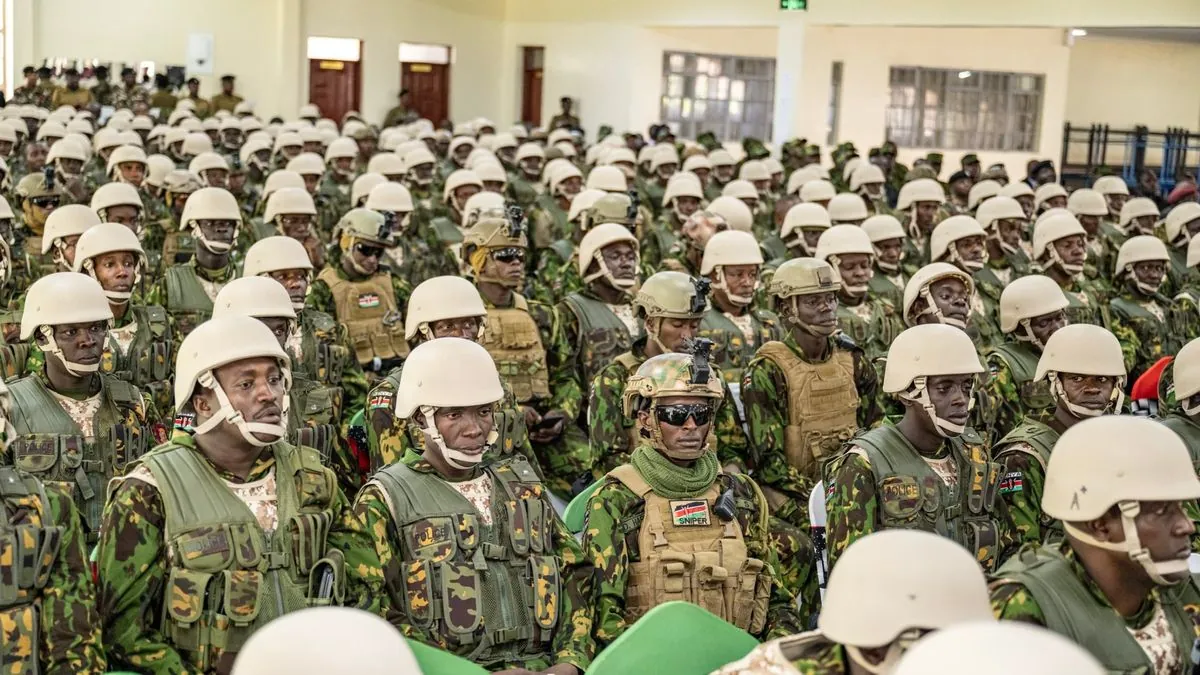Kenya is set to expand its police deployment to Haiti as part of a multinational effort to combat armed gangs in the Caribbean nation. This initiative aims to address the ongoing security challenges in Haiti, a country that has faced significant political instability and natural disasters throughout its history.
President William Ruto of Kenya announced this commitment during his address at the United Nations General Assembly. He stated, "Kenya will deploy the additional contingent towards attaining the target of all the 2,500 police officers by January next year." This deployment is part of a larger international force aimed at restoring order in Haiti.
Currently, Kenya has already sent 382 specially trained officers to Haiti. Ruto personally visited these officers last week, demonstrating Kenya's dedication to the mission. The East African nation has pledged to lead the multinational force with a total of 1,000 police officers, showcasing its commitment to international peacekeeping efforts.
Haiti, the poorest country in the Western Hemisphere, has been grappling with numerous challenges. Since gaining independence from France in 1804 as the first independent black republic, the nation has struggled with political instability and vulnerability to natural disasters. The country's population of about 11.4 million people faces issues such as deforestation, with only 2% of its original forest cover remaining, and a literacy rate of approximately 61%.
The deployment of Kenyan officers to Haiti is expected to help address the security situation in the country, which has been exacerbated by armed gangs. This assistance comes at a crucial time for Haiti, which is still recovering from the devastating 2010 earthquake that claimed over 200,000 lives and subsequent challenges such as cholera outbreaks.
Kenya's involvement in this multinational force demonstrates its growing role in international peacekeeping efforts. The success of this mission could have significant implications for Haiti's future stability and development, potentially impacting various aspects of Haitian life, from its vibrant art scene known for naive style and bright colors to its unique cuisine influenced by French, African, and indigenous Taíno cultures.
As the deployment progresses towards its January 2025 target, the international community will be watching closely to see how this multinational force, led by Kenya, can help Haiti address its security challenges and pave the way for a more stable future.
"I must emphasise, ... that Kenya will deploy the additional contingent towards attaining the target of all the 2,500 police officers by January next year."
This effort by Kenya and other nations involved in the multinational force represents a significant step towards addressing Haiti's complex issues, which extend beyond security to include economic challenges, environmental concerns, and the need for improved infrastructure and services for its population.
